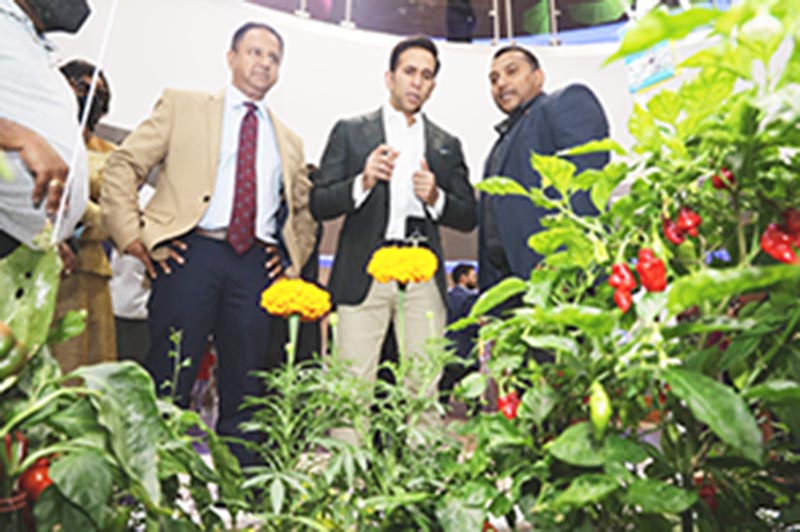(Trinidad Guardian) Faced with the threat of food shortages exacerbated by the COVID pandemic and the Russian/Ukraine war, Minister of Local Government Faris Al-Rawi says T&T is forming partnerships with Guyana as part of its food sustainability strategies.
Speaking at the launch of the Food and Agriculture expo at the Gulf City Shopping Complex yesterday, Al- Rawi said Guyanese President Dr Mohammed Irfaan Ali will be coming to T&T on August 17 to engage in talks.
“It’s time to dream. Money does grow on trees, it’s called agriculture. Corporate initiatives do exist.
The Prime Minister has led the charge in regional integration, which is why the President of Guyana will be here on the 17th of August to ensure that the land space of Guyana is available to the whole of Caricom.”
He said providing food sustainability and import substitution is no longer just talk.
“Having spent seven years passing laws of this country, I can vouch that agriculture in this country is 100 per cent tax-free. The incentives do exist,” he said.
He praised Southex Promotions, the T&T Chamber and the Supermarket Association for hosting the expo to provide opportunities for agricultural entrepreneurs.
Meanwhile, T&T Chamber president Charles Pashley said food security has taken centre stage in the global discussion.
“I think we have to recognise that even as we discuss food security, we must know that it requires a long-term investment in research and development, as well as varied infrastructural works and a commitment by the stakeholders—private sector and government,” Pashley said.
According to an online publication from Knoema, Pashley said agricultural land area in Trinidad and Tobago “fell gradually from 980 square kilometres in 1969 to 540 square kilometres in 2018.”
“Preservation of our remaining agricultural land for agricultural purposes ought to be recognised as an important part of our national development agenda. Happily, technological advances have made high-yield, small-space farming and processing possible and we can now maximise this,” he added.
He noted that several entrepreneurs have recognised the sector’s potential and there are now more private sector investments.
“Just recently, Guyana’s Vice President, referring to Caricom’s goal of increasing agricultural output by US$1.5 billion by 2025, estimated that US$7.5 billion more in private sector investment is required if the region is to reach that target,” he said.
Meanwhile, Deodath Ramjattan, chief executive officer of Plant Doctors HydroAqua Limited, said the Guyanese partnership was a welcomed initiative.
“The soil right now has many diseases and nutrition quality is depleted over the years. We are using a lot of organic materials now, so things are growing naturally,” he said.
Ramjattan has trained hundreds of farmers over the years in new agricultural techniques.
“When we get the initiative with Guyana, we are thinking about using the rice hull, and the sugar cane bagasse to make a soil putting it together in blocks and selling to farmers and householders so they can grow their food organically,” he added.
Meanwhile, Minister in the Ministry of Agriculture Avinash Singh said regional integration was high on the Government’s agricultural agenda as it relates to Caribbean food security.
“Based on the talks we held at the last visit, Guyana is making land space available for our feed processors to get raw materials to create the feed,” he revealed.
Singh added: “It doesn’t make sense for us to get raw materials from far countries when right here from our Caricom neighbour, we can get raw materials to create feeds.”
He said the T&T delegation had the opportunity to see the genetic material grown with wheat and the corn trials and these were very promising.
The expo has 40 booths and will run until Sunday, when it will end with a farmers’ market.






